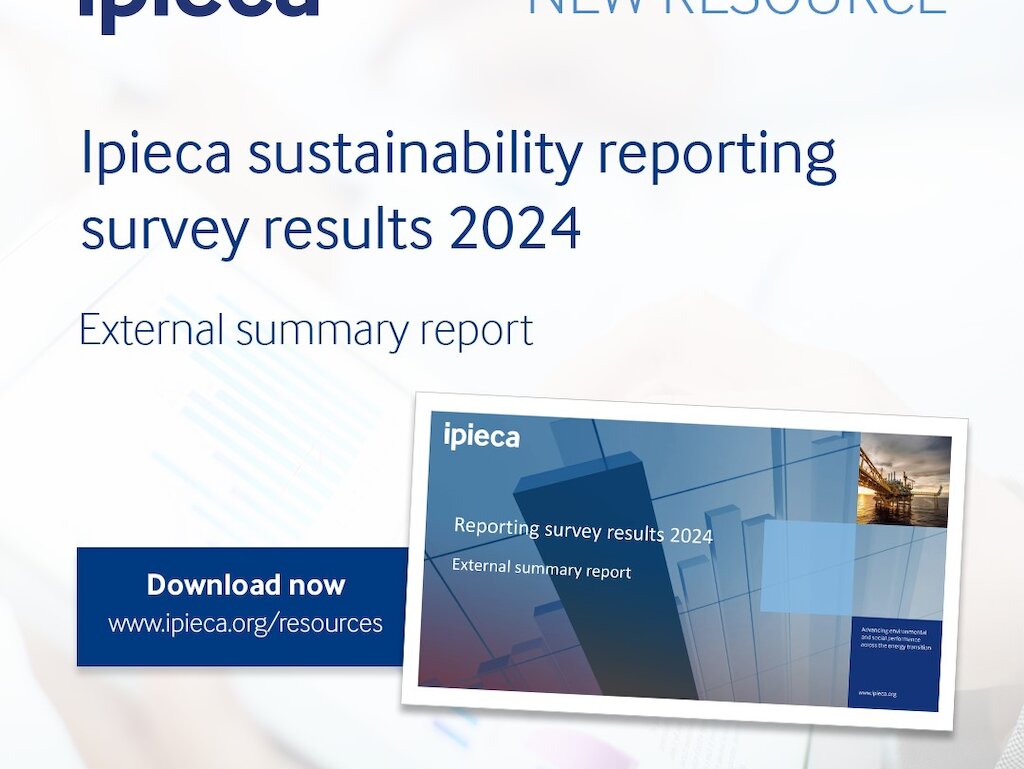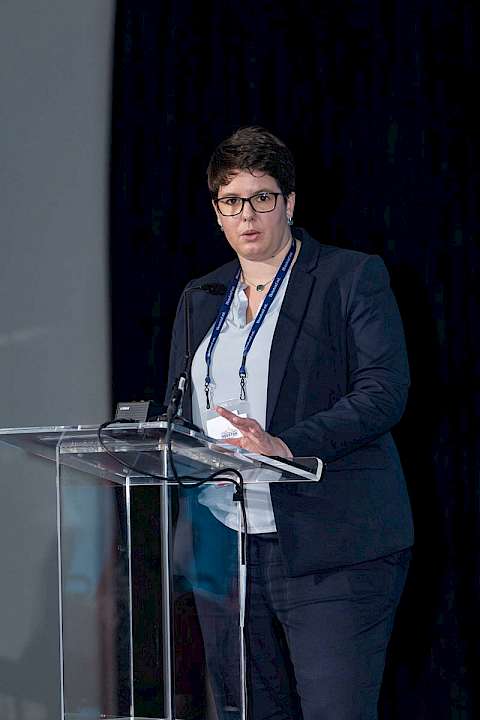
It was just over a month ago since I attended the 23rd World Petroleum Congress (WPC) in Houston. It was energizing to finally attend an event in person and reconnect with so many Ipieca members as well as meet lots of new connections from across the industry and around the world. It was great to see the UN Sustainable Development Goals (SDGs) take a central role at such an important event. Across the exhibitions, plenary and panel sessions it was clear that the oil and gas industry is serious about the SDGs. I was honoured to lead a CEO panel on the SDGs and the role of oil and gas, alongside my Ipieca colleague Sustainability and Social Director Isabel Miranda. I'd like to use this article to share some of the key take aways and messages around the SDGs from WPC 2021.
What are the SDGs?
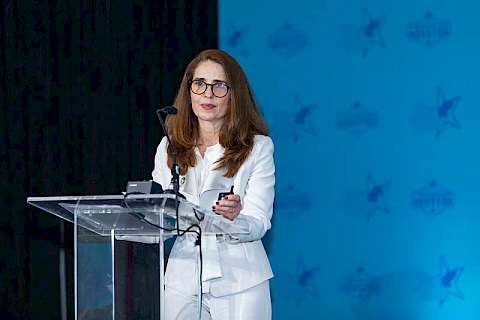
For those new to the SDGs, the 2030 Agenda for Sustainable Development, with its 17 SDGs, represents the world's plan of action for overcoming poverty while protecting the planet and ensuring that all people enjoy peace and prosperity. The SDGs emphasize that economic growth needs to be accompanied by social fairness and environmental sustainability.
Energy is key to achieving the SDGs
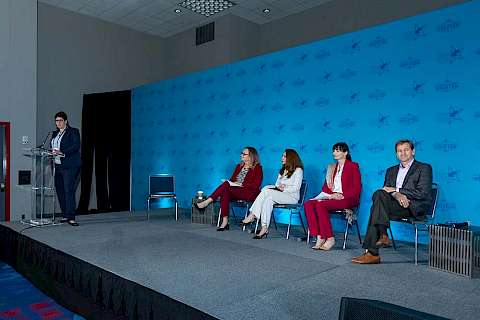
Energy is a key driver of sustainable development and has been called the 'golden thread' which connects all the SDGs. Access to affordable, reliable, sustainable and modern energy is essential for economic growth, employment, education, poverty reduction, and health and safety. To put it simply, without energy we simply cannot achieve the ambitions at the heart of the SDGs.
SDG 7 Affordable and clean energy
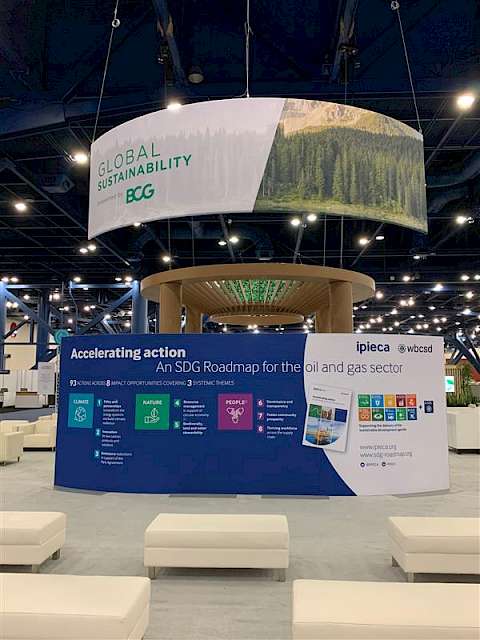
So, SDG7 on ensuring access to affordable, reliable, sustainable and modern energy for all is without a doubt one of the most important SDGs and key for global prosperity and wellbeing. I am pleased to say that we are making progress on this SDG. Since 2010, more than a billion people have gained access to electricity and in 2019, 90% of the planet's population was connected to a grid. These numbers show huge progress. But the IEA, IRENA, UN DESA, World Bank and WHO Energy progress report also shows that about 759 million people still live without electricity. In regions such as sub-Saharan Africa where half of secondary schools and a quarter of health facilities have no power, clean energy access would help save lives, and offer opportunities for prosperity at a transformative scale. Additionally, an estimated 2.6 billion people globally - that's a full one third of the global population - have no access to clean cooking and still have to rely on solid fuels such as wood, charcoal and animal dung for cooking and heating. It's clear that we still have a lot of work to do if we are to achieve the 2030 agenda to leave no one behind.
The oil and gas industry is accelerating SDG action
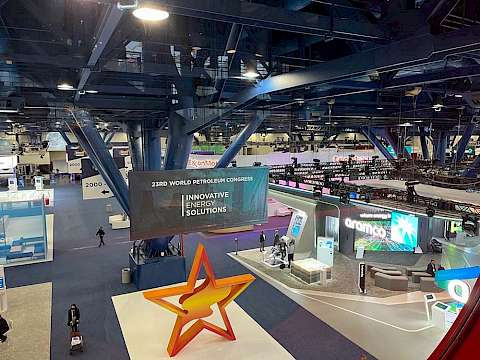
Action needs to be scaled up and quickly: with the 2030 deadline to deliver the SDGs fast approaching, and faced with climate change, nature loss and the unprecedented social and economic disruption caused by the COVID-19 pandemic - which in many cases has reversed progress on some of the goals - the need for concerted action and coordinated solutions is greater than ever if are to achieve the SDGs. Oil and gas are key pillars of the energy industry, currently providing over 50% of the world's energy supply. It is providing the affordable, reliable ever cleaner energy which powers progress around the world, supporting fair growth and improved living conditions for all. While the industry can make a huge contribution to SDG7, it can contribute to all 17 SDGs. In the exhibition booths, media centres and across the panel session I saw real life examples of the amazing things oil and gas companies are doing around the world, such as building health care centres, making water drinkable or investing in educational and community development programmes. You can see some examples for yourself of how the industry is contributing to all the goals in the Ipieca-IFC-UNDP SDG Atlas.
The industry is scaling up technological solutions such as carbon capture, utilization and storage, hydrogen and low carbon fuels which are enabling economic drivers such as cement, steel and shipping to decarbonize. It also has the ability to support governments to realize SDG impacts at scale, leveraging the sector's global footprint, deep technical resources and skills and access to capital.
However, there are also sustainability challenges facing the sector. While supporting a growing global population's demand for energy, the industry must continue to scale-up its climate change action, curbing emissions from global energy production and use, and continue to play its part in a world aspiring to net-zero emissions. In 2021, Ipieca in partnership with the World Business Council for Sustainable Development (WBCSD) launched the SDG Roadmap, which provides the industry with over short, medium and long term actions to scale up and accelerate its SDG impact, in doing so supporting climate action and a net-zero future.
It's clear that achieving SDG7 and providing energy access for all is one of the biggest and most important challenges facing our generation. It's also clear that the oil and gas industry has a major role to play in providing the energy, products and services that are needed to enable sustainable lifestyles and help lift billions out of poverty.
I would like to thank the World Petroleum Council for such a well-organized event held during a challenging time. Bringing stakeholders together in conferences and events like the World Petroleum Congress to share and discuss challenges and solutions is crucial to accelerate progress throughout the industry.



